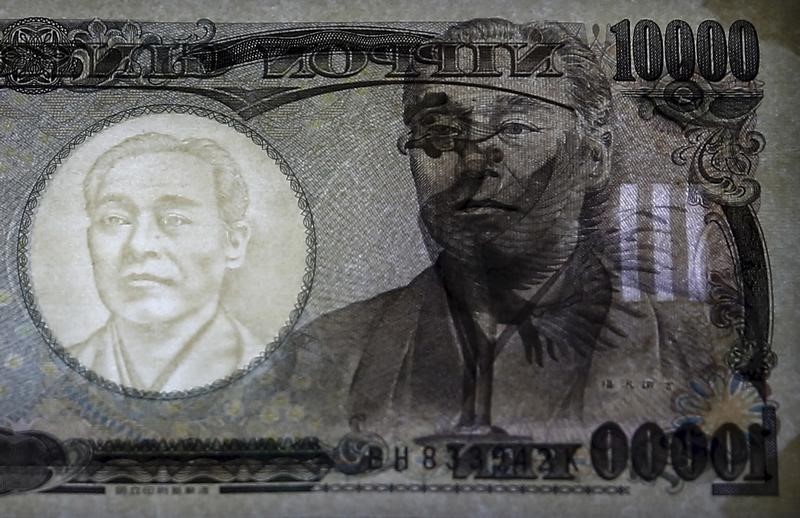Investing.com - The yen gained further in Asia on Wednesday with investors awaiting further policy cues on the currency, while the Aussie fell despite a noted gain in a confidence survey.
USD/JPY changed hands at 108.91, down 0.34%, while AUD/USD traded at 0.7358, down 0.07%.
In Australia, the Westpac consumer sentiment index for May is jumped 8.5%, compared with a 4.0% fall in the previous month. Also data on home loans for March month-on-month rose 0.9%, better than a drop of 1.5% seen.
"The Reserve Bank targets inflation and its latest forecasts point to the underlying inflation rate holding at 1.5% in 2016 - below the bottom of the 2%-3% target band. That is uncomfortable but nevertheless acceptable if the forecast is for inflation to move back comfortably within the band in 2017. Current forecasts are for underlying inflation to only move to the bottom of the band in 2017, despite the Bank including a follow up rate cut in its forecast assumptions (due to its practice of adopting market pricing for its interest rate assumptions for the forecast)," Westpac chief economist Bill Evans wrote in a note.
The U.S. dollar index, which measures the greenback’s strength against a trade-weighted basket of six major currencies, fell 0.11% to 94.12.
The Reserve Bank of New Zealand on Wednesday said it may consider more steps to tame house prices as imbalances in the market continue to increase.
NZD/USD traded at 0.6802, up 0.61%.
Overnight, the dollar rose against the yen on Tuesday after Japan’s finance minister warned that officials are prepared to intervene if the country’s currency continued to trengthen.
The dollar had fallen to 18-month lows of 105.05 against the yen last Tuesday after the Bank of Japan kept monetary policy unchanged, defying market expectations for additional easing. Japanese Finance Minister Taro Aso said Monday that financial authorities are prepared to intervene in the currency market if excessive moves in the yen continued.
The yen initially showed little reaction to the comments amid the view that authorities are unlikely to take steps to weaken the currency in the absence of support for such a move.
Late last month the U.S. Treasury Department added Japan to a watch list of countries it is monitoring to gauge whether their foreign exchange policies provide an unfair trade advantage.
Aso said Monday the Treasury’s move to put Japan on a watch list “won’t constrain” Tokyo’s currency policy. Speaking Tuesday, Aso reiterated that Tokyo will intervene in the currency market if "one-sided" moves in the yen persist. Also Tuesday, Japan’s Economy Minister Nobuteru Ishihara said he was closely watching financial markets after the yen’s gains last week.
